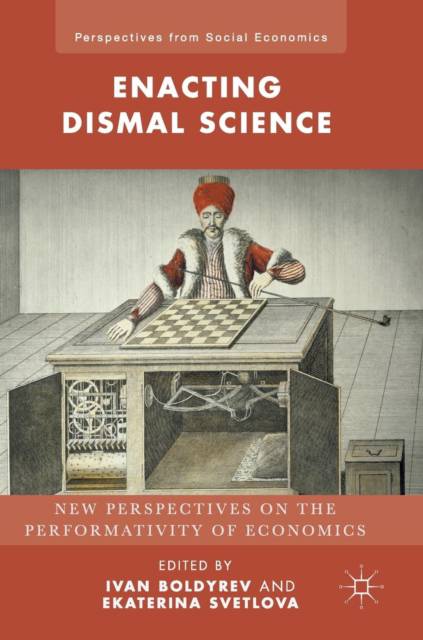
- Afhalen na 1 uur in een winkel met voorraad
- Gratis thuislevering in België vanaf € 30
- Ruim aanbod met 7 miljoen producten
- Afhalen na 1 uur in een winkel met voorraad
- Gratis thuislevering in België vanaf € 30
- Ruim aanbod met 7 miljoen producten
Zoeken
Enacting Dismal Science
New Perspectives on the Performativity of Economics
€ 97,95
+ 195 punten
Omschrijving
In this book, sociologists, philosophers, and economists investigate the conceptual issues around the performativity of economics over a variety of disciplinary contexts and provide new case studies illuminating this phenomenon.
Specificaties
Betrokkenen
- Uitgeverij:
Inhoud
- Aantal bladzijden:
- 206
- Reeks:
Eigenschappen
- Productcode (EAN):
- 9781137492104
- Verschijningsdatum:
- 29/07/2016
- Uitvoering:
- Hardcover
- Afmetingen:
- 148 mm x 210 mm
- Gewicht:
- 3846 g

Alleen bij Standaard Boekhandel
+ 195 punten op je klantenkaart van Standaard Boekhandel
Beoordelingen
We publiceren alleen reviews die voldoen aan de voorwaarden voor reviews. Bekijk onze voorwaarden voor reviews.






